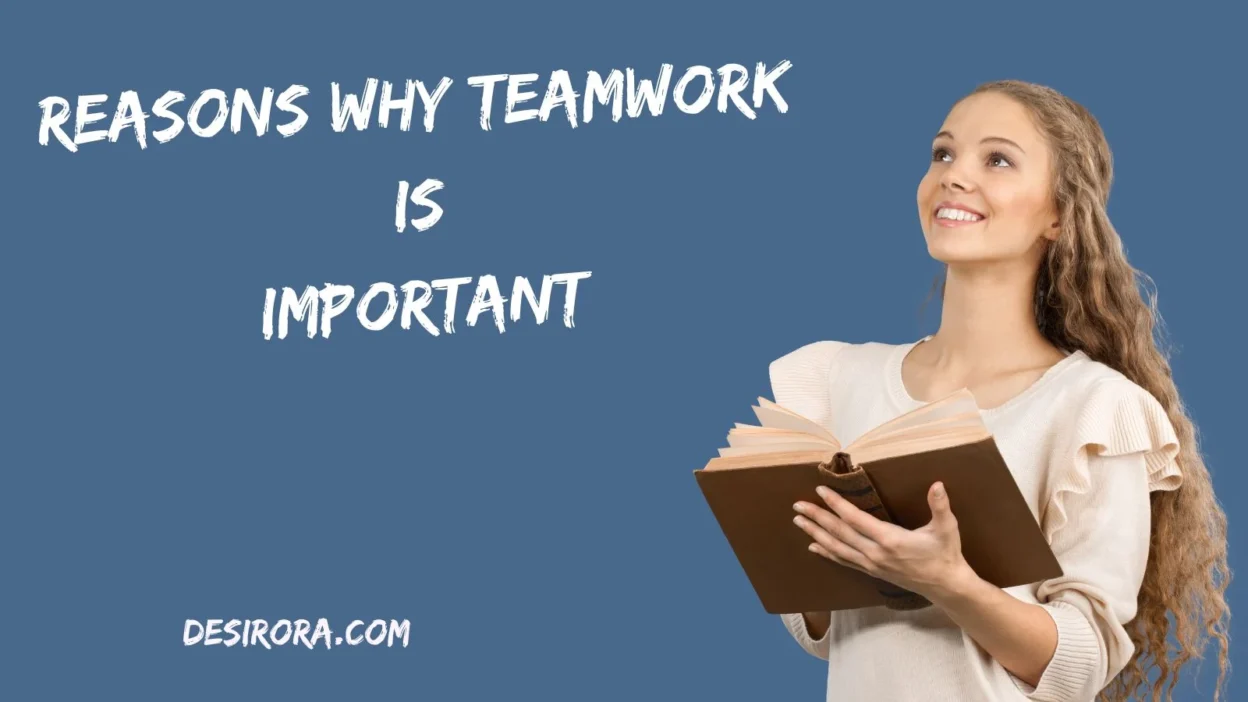In every corner of life — from classrooms to boardrooms — one truth keeps surfacing: teamwork is the heartbeat of success. Whether you’re building a company, winning a game, or organizing a family event, teamwork shapes how ideas grow and results shine.
But why is teamwork so important?
Let’s explore the deep, real-world reasons that make teamwork more than just a buzzword — it’s a way of life.
What Does “Teamwork” Really Mean?
Teamwork isn’t just a group of people working together — it’s about collaboration, trust, and shared goals.
In simple terms, teamwork means a group of people combining their skills and efforts to achieve something greater than any individual could do alone.
Think of an orchestra: each musician plays a different instrument, but together, they create harmony. That’s teamwork in action.
Here’s how we can define it:
| Aspect | Explanation | Example |
| Collaboration | Working together efficiently | Team brainstorming session |
| Communication | Sharing ideas clearly | Daily stand-up meeting |
| Trust | Believing in each other’s abilities | Delegating tasks without micromanaging |
| Commitment | Staying dedicated to group goals | Finishing a project on time |
“Alone we can do so little; together we can do so much.” — Helen Keller
Key Benefits of Teamwork
Teamwork brings a collection of benefits that touch both individuals and organizations. Let’s break down the core reasons why teamwork is important in personal, professional, and social settings.
Boosts Creativity and Innovation
When diverse minds come together, ideas multiply. Teamwork allows people with different backgrounds and perspectives to spark creative solutions that one person might never think of.
Example: Google’s product design teams encourage open collaboration sessions where every idea is welcome, no matter how wild. The result? Innovation at scale.
Improves Efficiency
Teams divide work based on strengths. Instead of one person juggling everything, tasks are distributed efficiently — meaning projects get done faster and better.
Builds Strong Relationships
Working in a team fosters friendships, empathy, and mutual respect. You learn how to communicate better, listen actively, and celebrate others’ wins.
Enhances Learning
Team members learn from each other. A beginner gains knowledge from an expert, while the expert sharpens leadership and mentoring skills. Everyone grows together.
Strengthens Accountability
In a strong team, no one wants to let others down. Accountability builds naturally, leading to consistent performance and trust.
Types of Teamwork in Different Settings
Not all teamwork looks the same. It evolves based on the environment. Here are some common types of teamwork across various fields:
| Type | Setting | Example |
| Corporate Teamwork | Offices, startups | Marketing, finance, design collaboration |
| Academic Teamwork | Schools, universities | Group research or presentations |
| Sports Teamwork | Athletics, clubs | Soccer teams, relay races |
| Community Teamwork | Volunteering or activism | Neighborhood cleanup or charity drives |
| Creative Teamwork | Arts, music, design | Film production, songwriting, exhibitions |
Each form has its rhythm, but they all depend on communication, coordination, and commitment.
Real-Life Examples That Show Why Teamwork Matters
Let’s step into some real-world stories that highlight how teamwork can transform challenges into triumphs.
NASA’s Apollo 13 Mission
When Apollo 13 suffered an explosion mid-flight, it wasn’t one hero who saved the astronauts — it was hundreds of engineers, scientists, and crew members working around the clock. Their teamwork turned potential tragedy into one of humanity’s greatest problem-solving feats.
The 2016 Chicago Cubs
After 108 years without a championship, the Cubs finally broke their curse. Their success wasn’t about one superstar — it was about trust, chemistry, and collective resilience.
Pixar’s Animation Studios
Pixar’s magic lies in “collaborative candor.” Every movie goes through brain trust meetings, where everyone — from writers to animators — contributes feedback. This teamwork culture keeps creativity alive.
How Teamwork Boosts Culture, Productivity, and Innovation
Teamwork Builds a Healthy Work Culture
A culture of teamwork makes workplaces more positive. Employees feel valued, heard, and supported.
This emotional safety leads to higher retention rates and overall job satisfaction.
It Increases Productivity
When people work together effectively, tasks are shared, deadlines are met, and burnout is reduced.
Research shows that companies with strong teamwork outperform competitors by over 25% in productivity metrics.
Sparks Innovation and Adaptability
A team environment fosters curiosity. New ideas are tested faster because multiple minds can refine them.
When challenges arise, teams adapt more easily than isolated individuals.
Common Challenges (and How to Solve Them)
Even the best teams face roadblocks. Let’s look at the common teamwork challenges and how to overcome them:
| Challenge | Cause | Solution |
| Poor Communication | Misunderstandings or assumptions | Set clear goals, use feedback loops |
| Lack of Trust | Past conflicts or uncertainty | Encourage transparency and appreciation |
| Unequal Participation | Some dominate, others stay quiet | Rotate leadership or assign roles |
| Conflicting Priorities | Different objectives | Align team goals with organizational vision |
Pro Tip: Regular team check-ins and open dialogue can solve 80% of communication problems before they escalate.
Skills & Traits That Make a Team Work Well
To build a successful team, each member needs a blend of soft and hard skills.
Key Soft Skills
- Empathy: Understanding others’ emotions builds trust.
- Active Listening: Helps avoid miscommunication.
- Flexibility: Teams thrive on adaptability.
- Conflict Resolution: Turning disagreements into growth opportunities.
Key Hard Skills
- Project Management: Keeps tasks organized.
- Time Management: Ensures smooth workflow.
- Technical Expertise: Each member’s skill adds unique value.
Here’s a synonym table to expand your vocabulary around teamwork:
| Word | Synonym(s) | Usage Example |
| Cooperation | Collaboration, partnership | “Cooperation is key to team success.” |
| Unity | Togetherness, solidarity | “Unity strengthens morale.” |
| Communication | Interaction, dialogue | “Open communication prevents errors.” |
| Dependability | Reliability, consistency | “Dependable teammates earn respect.” |
Using Idioms, Metaphors & Synonyms to Understand Teamwork
Language reflects culture — and teamwork shows up in countless idioms. Here are a few that perfectly express the spirit of teamwork:
| Idiom/Expression | Meaning |
| “All hands on deck” | Everyone must contribute |
| “Pulling together” | Working in harmony |
| “In sync” | Perfectly coordinated |
| “Rowing in the same direction” | Sharing the same goal |
| “There’s no ‘I’ in team” | Success depends on everyone, not individuals |
Metaphorically speaking, teamwork is like a bridge — it connects gaps and helps everyone cross challenges together.
Grammar Spotlight: Why We Say “Teamwork Is,” Not “Teamwork Are”
Many learners wonder: why do we use “teamwork is” and not “teamwork are”?
That’s because “teamwork” is an uncountable noun — it refers to the concept or quality of working together, not to individual members.
✅ Correct: Teamwork is essential for success.
❌ Incorrect: Teamwork are essential for success.
Tip: Words like leadership, communication, and cooperation follow the same rule.
Summary of Why Teamwork Is Important
Let’s quickly recap the biggest reasons why teamwork is important:
- Encourages creativity and innovation
- Builds trust and communication
- Improves productivity and efficiency
- Creates stronger workplace culture
- Helps solve problems faster
- Promotes learning and personal growth
- Increases accountability and motivation
In short, teamwork turns ordinary efforts into extraordinary results.
FAQs
Q1: What is the main purpose of teamwork?
The main purpose of teamwork is to combine strengths, share knowledge, and achieve goals that individuals couldn’t accomplish alone.
Q2: How does teamwork improve communication?
Teamwork builds open communication channels where ideas flow freely, improving clarity and understanding among members.
Q3: Why is teamwork important in school?
In schools, teamwork helps students learn cooperation, leadership, and empathy — preparing them for real-world success.
Q4: Can teamwork improve creativity?
Absolutely. Brainstorming in teams introduces diverse perspectives, sparking new and innovative ideas.
Q5: What are the key elements of teamwork?
Trust, communication, collaboration, accountability, and shared vision are the foundation of strong teamwork.
Conclusion
Teamwork isn’t just a skill — it’s a superpower. It’s what transforms a group of people into a force capable of changing the world.
From classrooms to companies, from sports fields to space missions, teamwork defines success stories everywhere. It builds unity, amplifies creativity, and strengthens the human spirit.
So the next time you’re part of a team, remember this simple truth:
“Talent wins games, but teamwork and intelligence win championships.” — Michael Jordan
Work together, grow together, and watch how teamwork turns potential into unstoppable success.

Thomas Hardy is a passionate innovator and thoughtful leader, dedicated to transforming ideas into lasting success. With creativity and purpose, he brings vision and authenticity to everything he does.



